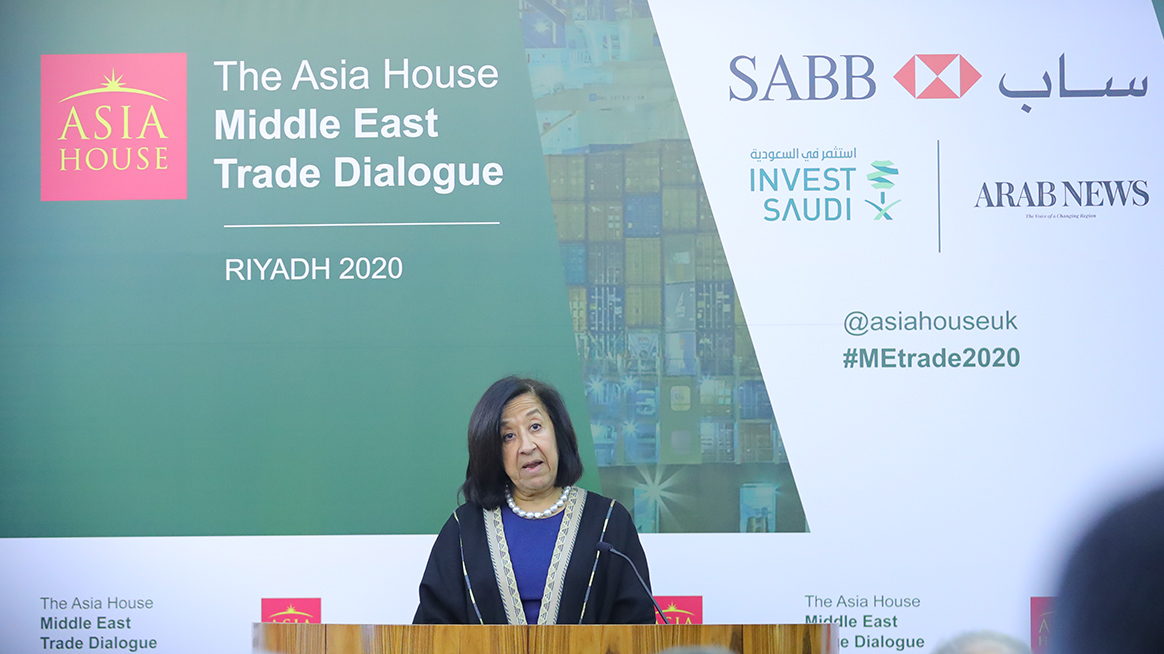Driving commercial and political engagement between Asia, the Middle East and Europe
Driving commercial and political engagement between Asia, the Middle East and Europe
Driving commercial and political engagement between Asia, the Middle East and Europe

Global trade is at a tipping point as protectionist and nationalistic forces threaten the established system, one of the world’s leading investment figures told Asia House’s major conference in Saudi Arabia this week.
Luban Olayan, Chair, Saudi British Bank and Chair of the Executive Committee, Olayan Financing Company, warned that “barriers which so many of us thought had been coming down” have “started going up again – emotionally, intellectually and culturally.”
Too many people around the world feel “left behind in the global race for greater prosperity,” Olayan said, adding that “the real benefits that globalisation had brought” have been forgotten.
These pressures, heightened by rising trade tensions and the disruption of new technologies, are leading to a fragmentation and regionalisation of supply chains and the political weaponisation of trade, she warned.
“We stand at a fork in the road of the future of global trade,” Olayan said. “Do we allow markets to continue to fragment, and the frictions and costs of cross border trade to rise, with adverse consequences for wealth and wellbeing across the globe?
“I hope we all agree that this is not an option.”
Olayan was giving the keynote address at the Asia House Middle East Trade Dialogue in Riyadh, which convened key figures from regional and global trade, investment and policy. The conference heard insights from representatives from Saudi British Bank, Accenture, and Saudi Aramco across a range of issues driving change in the world economy.
In an expansive and compelling speech, Olayan called for action to be taken to address the challenges facing global trade and investment.
“We must leverage current pressures on open markets to strengthen the multilateral trade and investment system, by reforming the World Trade Organisation, expressing support for open markets, and encouraging governments to support an open, modern and rules-based multilateral trading system, benefitting global society,” she said.
“We all, starting with governments and the international bodies who regulate trade, need to do much more to strengthen joint initiatives for trade and investment, by launching negotiations for an international investment facilitation agreement, by improving access to trade finance, and by strengthening investment opportunities, especially in travel, hospitality and tourism, which are so important to international markets.”
READ LUBNA OLAYAN’S SPEECH IN FULL[PDF]
